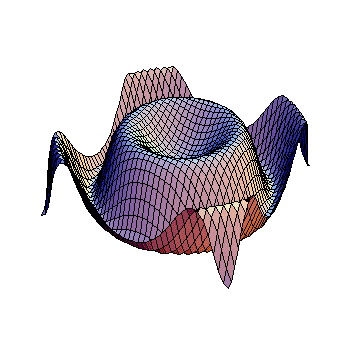Reewrite #csc(x)# as #y#
#y^2 = 3y + 4#
Make one of the sides equal 0
#y^2 - 3y - 4 = 0#
Solve the quadratic either by sum and product, (wielding #4# and #-1#) or by the formula
#y = (3 +- sqrt(9 -4*1*(-4)))/2 = (3 +- sqrt(9 +16))/2 = (3 +- sqrt(25))/2#
#y= (3 +- 5)/2#
#r_1 = (3+5)/2 = 8/2 = 4#
#r_2 = (3-5)/2 = -2/2 = -1#
So we know that
#csc(x) = 1/sin(x) = -1# or #csc(x) = 1/sin(x) = 4#, which means
#sin(x) = -1# or #sin(x) = 1/4#
So, for answers within the range of #[0,2pi]#, we have that
#sin(x) = -1 rarr x = (3pi)/2#
#sin(x) = 1/4 rarr x = arcsin(1/4) and x = pi - arcsin(1/4)#
So the set of solutions #S# is
#S = {arcsin(1/4), pi - arcsin(1/4), (3pi)/2}#
Or, using approximate values
#S ~= {1/4, (3pi)/4, (3pi)/2}#

